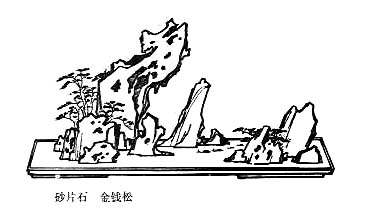Shi Jing 
 – Le Canon des Poèmes
– Le Canon des Poèmes
Le plus ancien recueil connu de poésie chinoise, plus de trois cents chansons, odes et hymnes. Tr. Legge (en) et Granet (fr, incomplète).
Shijing II. 1. (161)
With pleased sounds the deer call to one another,
Eating the celery of the fields.
I have here admirable guests ;
The lutes are struck, and the organ is blown [for them] ; –
The organ is blown till its tongues are all moving.
The baskets of offerings [also] are presented to them.
The men love me,
And will show me the perfect path.
With pleased sounds the deer call to one another,
Eating the southernwood of the fields.
I have here admirable guests ;
Whose virtuous fame is grandly brilliant.
They show the people not to be mean ;
The officers have in them a pattern and model.
I have good wine,
Which my admirable guests drink, enjoying themselves.
With pleased sounds the deer call to one another,
Eating the salsola of the fields.
I have here admirable guests ;
For whom are struck the lutes, large and small.
The lutes, large and small, are struck,
And our harmonious joy is long-continued.
I have good wine,
To feast and make glad the hearts of my admirable guests.
Legge 161

Le Canon des Poèmes – Shi Jing II. 1. (161) – Chinois off/on – Français/English
Alias Shijing, Shi Jing, Book of Odes, Book of Songs, Classic of Odes, Classic of
Poetry, Livre des Odes, Canon des Poèmes.
Le Canon des Poèmes, Les Entretiens, La Grande Étude, Le Juste Milieu, Les Trois Caractères, Le Livre des Mutations, De la Voie et la Vertu, 300 poèmes Tang, L'Art de la guerre, Trente-six stratagèmes
Bienvenue, aide, notes, introduction, table.
Index – Contact – Haut de page
